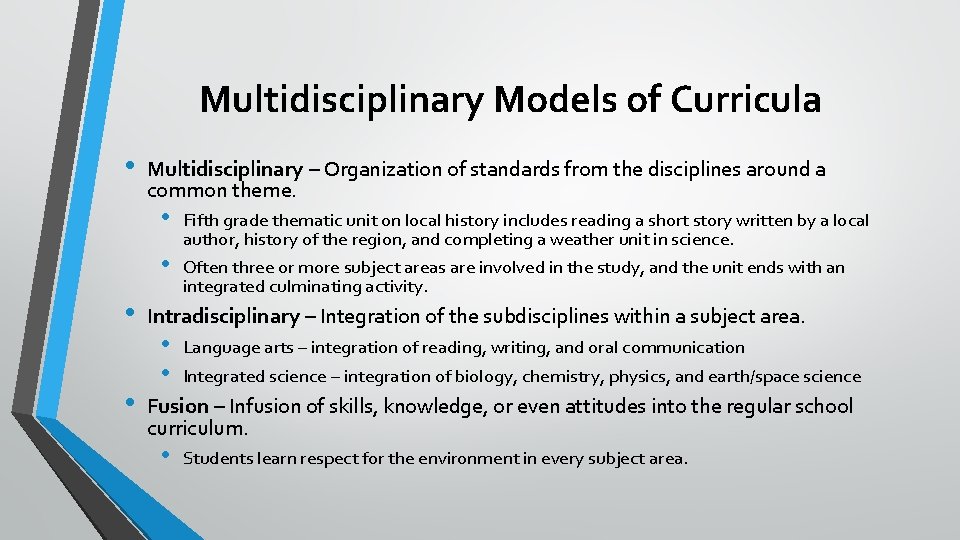FTC V. Meta: Defense Takes Center Stage

Table of Contents
Challenging the FTC's Definition of the Relevant Market
The FTC's case hinges on its definition of the relevant market. Meta's defense strategy directly challenges this definition, arguing that the FTC's narrow focus on "social networking" is fundamentally flawed.
Meta's Argument for a Broader Market
Meta argues that the market isn't limited to just Facebook, Instagram, and WhatsApp. They contend that a broader definition must encompass a wider range of competing platforms and services.
- Intense Competition from Diverse Platforms: Meta highlights the significant competition from platforms like TikTok, Snapchat, Twitter (now X), and even older communication methods such as email and text messaging. These platforms offer overlapping functionalities, catering to diverse user needs and preferences.
- Dynamic Nature of the Digital Market: The social media landscape is incredibly dynamic. New platforms emerge regularly, and user preferences shift constantly. A static market definition, Meta argues, fails to capture this fluidity and the competitive pressures within it.
- Evidence of Consumer Choice and Platform Switching: Meta likely will present data demonstrating significant consumer choice and the ease with which users switch between different platforms, highlighting the lack of true market dominance. This data may include user surveys, platform usage statistics, and market share analysis.
The Importance of Interoperability
Meta's defense further emphasizes the interoperability between different social media platforms. This interoperability, they argue, significantly mitigates any concerns about market dominance.
- Ease of Platform Switching and Maintaining Connections: Users can easily switch between platforms and maintain connections with their contacts across multiple services. This flexibility reduces the perceived lock-in effect often associated with monopolistic practices.
- Evidence of Cross-Platform Usage: Meta might provide data demonstrating that a substantial portion of its users also utilize competing platforms, indicating a lack of dependence solely on Meta's services.
- Impact of Data Portability: The increasing focus on data portability allows users to move their data between platforms more easily, further fostering competition and reducing the barriers to switching.
Dispelling Accusations of Anti-Competitive Acquisitions
A significant part of the FTC's case focuses on Meta's acquisitions of Instagram and WhatsApp. Meta's defense will aim to justify these acquisitions and refute claims of anti-competitive behavior.
Justifying Past Acquisitions (e.g., Instagram, WhatsApp)
Meta will likely argue that the acquisitions of Instagram and WhatsApp were pro-competitive, benefiting both consumers and the overall market.
- Innovation and Improvements Post-Acquisition: Meta will highlight the significant innovations and improvements made to both platforms since their acquisitions, emphasizing enhanced user experience, new features, and increased user base.
- Enhanced Product Offerings and User Experience: The integration of these platforms into Meta's ecosystem has, according to Meta, led to a richer and more comprehensive user experience, with seamless integration and cross-platform functionalities.
- Increased Consumer Choice and Market Growth: Meta will likely present data showing increased consumer choice and overall market growth following these acquisitions, arguing against the claim that they stifled competition.
Addressing Concerns Regarding Anti-Competitive Practices
The FTC is likely to allege that Meta engaged in anti-competitive practices, such as prioritizing its own services over rivals. Meta will need to directly address these concerns.
- Transparency of Algorithms and Data Handling Practices: Meta may need to provide greater transparency regarding its algorithms and data handling practices, demonstrating fairness and equal opportunities for all platforms.
- Evidence of Fair Competition: Meta will need to present evidence demonstrating that it fosters fair competition and provides equal opportunities to other platforms, possibly highlighting its own open APIs and developer programs.
- Addressing Data Privacy Concerns: The FTC's concerns about data privacy will likely be intertwined with the antitrust arguments. Meta will need to convincingly address these concerns to strengthen its defense.
The Potential Impact of a Ruling on the Future of Tech Regulation
The FTC v. Meta case holds significant implications for the future of tech regulation and antitrust enforcement.
Setting Precedents for Future Antitrust Cases
The outcome of this case will set important precedents for future antitrust litigation involving large technology companies.
- Impact on Mergers and Acquisitions in the Tech Industry: The ruling will influence how future mergers and acquisitions in the tech sector are evaluated and potentially shape stricter regulatory oversight.
- Implications for Data Privacy Regulation and Antitrust Enforcement: The case will have far-reaching consequences for data privacy regulations and the enforcement of antitrust laws in the digital age.
- Consequences for Innovation and Competition: The outcome could significantly affect innovation and competition within the digital marketplace, potentially influencing the pace of technological advancement and the diversity of available platforms.
Conclusion:
The FTC v. Meta case represents a pivotal moment for antitrust law and the future of social media. Meta's defense strategy relies on a multi-pronged approach: challenging the FTC's market definition, justifying past acquisitions, and refuting allegations of anti-competitive practices. The outcome will significantly shape the regulatory landscape for tech companies worldwide. Understanding Meta's defense against the FTC is crucial for anyone interested in this landmark case and its far-reaching implications for the future of digital competition. Stay informed on the developments in the FTC v. Meta case to understand the ever-evolving dynamics of the tech industry and the ongoing battle over antitrust regulations.

Featured Posts
-
 Interdisciplinary And Transdisciplinary Approaches A Key To Solving Complex Problems
May 19, 2025
Interdisciplinary And Transdisciplinary Approaches A Key To Solving Complex Problems
May 19, 2025 -
 76p Royal Mail Stamp Price Hike Analysis Of The Increasing Costs
May 19, 2025
76p Royal Mail Stamp Price Hike Analysis Of The Increasing Costs
May 19, 2025 -
 Increased Royal Mail Stamp Costs Unfair Pricing Voice Your Concerns
May 19, 2025
Increased Royal Mail Stamp Costs Unfair Pricing Voice Your Concerns
May 19, 2025 -
 Kibris Isguecue Piyasasi Icin Dijital Veri Tabani Rehberi Oenemli Bir Kaynak
May 19, 2025
Kibris Isguecue Piyasasi Icin Dijital Veri Tabani Rehberi Oenemli Bir Kaynak
May 19, 2025 -
 Manchester City Star Erling Haaland Buys Rs 44 Crore Bugatti
May 19, 2025
Manchester City Star Erling Haaland Buys Rs 44 Crore Bugatti
May 19, 2025
